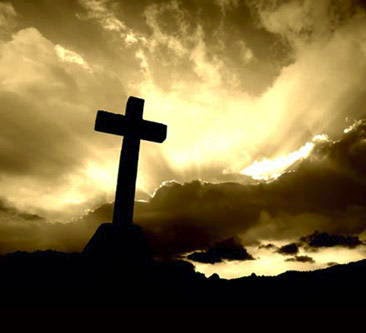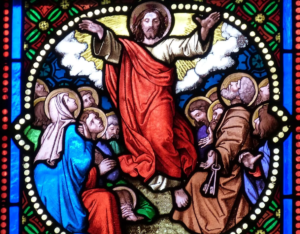On May 2nd, I debated Nathan J Reese on Richard Bushey’s pod cast called the Therefore God Exists Podcast named after his website ThereforeGodExists.com and Facebook group “Therefore God Exists (theology”). The topic was on the resurrection. By the way, if you have not watched the debate, please click here. I’d prefer you watch the debate before reading and/or commenting. Click here to watch the video or go over to the “My Video Debates” section and watch it. It’ll be the fourth one down.
I want to write this blog post to address some of the things I either forgot to address or didn’t address to my complete satisfaction.
“Extraordinary Claims Require Extraordinary Evidence”
He started his opening statement with a quote from Carl Sagan where he said “Extraordinary claims require extraordinary evidence”. Supposedly need more evidence for the resurrection than for any other event because the probability against a resurrection ever occurring is so extreme. After all, the vast majority of people who have ever lived have remained in their graves. It’s far more probable that something else happened to the body of Jesus than a miraculous resurrection. As a result, we can either never affirm the resurrection historically or if we do, we need far more evidence for it than other events.
The problem is is that the claim “Extraordinary Claims Require Extraordinary Evidence” is very ambiguous. What exactly counts as “extraordinary”? I hate it when skeptics use this slogan because it’s a very slippery criteria. Basically, it allows the skeptic to keep moving the standard of evidence up and up and up…so that no amount of evidence will ever be enough. There needs to be some specific criteria before the Christian Apologist tries to meet this standard.
Moreover, I’d agree that people stay in their graves far more often than they’re resurrected. I agree that resurrections are extremely improbable normally. This is what is called antecedent probability. Our background knowledge says that people who die stay dead and we have billions of examples of this. However, I don’t think this counts against the historical case for Jesus’ resurrection. For if you only look at our background information and nothing else…then of course Jesus’ resurrection is extremely, extremely improbable. But if you look at the specific evidence in the case, I think Jesus’ resurrection is extremely, extremely probable. As I pointed out in the opening statement to my debate, and as I argue in “The Minimal Facts Case For Jesus’ Resurrection PART 1”, we have excellent historical evidence that (1) Jesus died by crucifixion, (2) the following Sunday morning, His tomb was found empty by a group of His women followers, (3) Jesus’ disciples subsequently believed that they saw Him alive, (4) after that, a skeptic named James believed that he saw Him, and (5) a church persecutor named Saul Of Tarsus converted on the basis of what he believed was an appearance of the risen Jesus to Him.
These are the 5 facts that must be accounted for. No naturalistic theory I’ve ever come across has been able to account for these 5 facts. I address the various naturalistic theory in “The Minimal Facts Case For Jesus’ Resurrection PART 2” The best ones can only account for one or two, but most can’t account for any of the 5 facts. For example, the hallucination theory neither accounts for any of the postmortem appearances of Jesus, nor the empty tomb. The resurrection is the only explanation that explains why Jesus’ tomb was empty, why the disciples, and two skeptics believed they saw Him alive after His crucifixion. It has the explanatory power and explanatory scope. And that’s why I think it’s the best explanation of the facts.
And I’d argue that the existence of the evidence, that is to say, the 5 minimal facts is improbable in light of the hypothesis “Jesus did not rise from the dead”. Now what do I mean by that? I mean, that if Jesus did not really rise from the dead, then the 5 minimal facts should not be facts. Jesus’ tomb should still have His corpse in it, and no one should have come to the belief that they saw Him alive. The disciples should have mourned for the death of their leader, and life would have gone on as it did before, not come to the belief that they saw Him alive. Jesus would have been only one of many false messiahs who have been forgotten by history. The existence of the evidence is extremely improbable in light of the hypothesis “Jesus did not rise from the dead”
Here’s an analogy; let’s say that a woman is brought before a jury on charges of murder. She’s accused of having killed her young son. Now, at the start, you might think that it’s extremely unlikely that she is guilty. After all, the vast majority of mothers who’ve ever lived do not harm their children. They love and care for them. In light of this background information, the claim that she is guilty is enormously improbable. And you’d be justified in thinking that if that background knowledge was all you had to go on. However, investigators found a bloody knife in the back seat of her car next to a mud covered shovel. They found in her house a pair of pants that also had small splotches of blood on them. They also have several eyewitnesses who said that they heard a child screaming before seeing the defendant carrying a black garbage back and a shovel out their house in the middle of the night, the same night of the murder. When investigators found the dead child, it was in a black garbage bag. The defendant also had a history of violence. In light of this evidence, the claim “She is Not Guilty” becomes enormously improbable. It’s improbable in spite of the background information that “Mothers don’t normally kill their sons”. In fact, the existence of the evidence is improbable if she is not guilty. If she’s not guilty, the detectives should not have found what they found. In the same way, the existence of the minimal facts (2) Jesus’ Empty Tomb, (3) Postmortem Appearances To The Disciples, (4) Postmortem Appearance To The Skeptic James, and (5) the postmortem appearance to Paul, should not be minimal facts if Jesus did not rise from the dead. The historians should not have uncovered this data if Jesus was not resurrected.
—-
The Traditional Authorship Of The Gospels
I didn’t address the authorship issue by the way because it doesn’t affect my case one iota. A minimal facts case is using 1: data that have a lot of evidence in favor of them, and 2: They are nearly universally accepted by scholars on the subject, even the skeptical non-Christian scholars. While I believe the traditional authorship meets number 1, it does not meet number 2. And it’s irrelevant in proving or disproving the resurrection anyway. Even if the documents were written by other followers of Jesus, or even by some people in the early church, we can still establish the 5 facts necessary for inferring The Resurrection Hypothesis.
For example, we can still know that the original disciples claimed Jesus rose. In Paul’s letters, he says they had access to the original disciples and had fellowshipped with them. And I’m sure Peter told Paul whether or not he had seen Jesus when he visited them in Galatians 1:18-19 (which is probably when he received this early creed). And of course, the creedal tradition dates to within 5 years after the death of Jesus, well within the lifetimes of the 12 disciples who could have corrected this oral tradition if He really hadn’t appeared to them. Moreover, Tertullian and Irenaeus attest that Polycarp and Clement were students of the apostle John and that they knew several of the apostles. Polycarp and Clement says that the original disciples were claiming that Jesus rose from the dead and appeared to them.
In all, we have 9 ancient sources that attest to the original disciple’s claims to have seen Jesus. And with the 7 independent sources that attest to their martyrdom, we can conclude that they didn’t just merely *claim* that Jesus appeared to them, they really believed it. Of course, Nathan doesn’t believe the martyred deaths of the apostles really occurred, but he’s making a claim that even most skeptical scholars would disagree with. I pressed him to provide evidence that the church fathers were merely making up these martyred death stories, but he didn’t do it. He merely made unsupported assertions and put them forward as fact, expecting me to refute them. But why should I have to go through the trouble of refuting every unsupported story a person can come up with?
But, my point is, even if I conceded that the skeptics are right about the traditional authors not really being the authors of the four gospels, we can still get the data we need for our case. The authorship of the gospels can be left as an open question for later inquiry.
The Unreliability Of The Burial Story Of Jesus & The Empty Tomb
His next point was that it’s very likely that Jesus was never buried in a tomb by Joseph Of Aramethea. One of the reasons is that the very early creedal tradition I mentioned in my opening statement (the one Paul cites in 1 Corinthians 15) does not mention that Jesus is buried by Joseph. Supposedly this was supposed to be a legend that developed over time. The creed also doesn’t mention the empty tomb, or that it was visited by women. The problem with this argument is that it’s an argument from silence, which is a logical fallacy. Yeah, Paul doesn’t mention that Jesus was buried “by Joseph”. He also doesn’t mention the empty tomb (explicitly at least, though I argued that is implied by the phrase “and that He was buried, and that He was raised”). Guess what else Paul doesn’t mention? He doesn’t mention that Jesus was crucified “in Jerusalem by Pontius Pilate at the suggestion of the Sanhedrin on the eve of the Passover”. He says He died, but not by crucifixion, and not by Pontius Pilate, and not at the suggestion of the Sanhedrin, and not on the eve of the Passover. He only says “Christ died…” You see, the whole point of a creed is to be brief. Creeds are formulated for the purpose of having people easily memorize information. If the information a creed contained were exhaustive, it might become difficult for people to memorize.
Moreover, just because Paul doesn’t mention that Jesus was buried “by Joseph” doesn’t mean he doesn’t believe it. Besides, he does say that Jesus was buried, and that provides multiple attestation for the burial. We have the burial mentioned in the early resurrection creed and we also have it mentioned in the synoptic gospels and John’s gospel. Three Independent sources are unlikely to fabricate the same fiction, and therefore its likely to be historical.
Besides, I argued that we have very good reason to believe that the creed dates back very early after the death of Jesus. Approximately 5 years after the fact! Highly unlikely that they would have forgotten that Jesus wasn’t really buried within that amount of time. Early attestation is one of the principles historians employ. The earlier a report is with respect to the event that report is talking about, the more likely it is to be historical. And with oral tradition, there’s less time for distortion to take place. The fact that its so early also counts in favor of the factuality of what’s contained in the creed. For one reason, if Jesus was left hanging on the cross overnight, people who were there (e.g Mary, John, Joseph himself,) could have pointed out the falsehoods.
But, as I said on the podcast, I usually don’t even use the burial story in my case for the resurrection anyway. I think we can demonstrate that the tomb was empty without it. Three of those reasons, I pointed out in my recent blog post “The Minimal Facts Case For Jesus’ Resurrection PART 1”.
There Were No Martyrdoms Of The 12 Disciples
Finally, Nathan argued that there probably were no martyrdoms of the 12 disciples. He brought this “argument” up when I argued against The Stolen Body theory by saying that the disciples would not willingly die for what they knew was a lie. He argued that the early church simply made up these traditions in order to attract followers to Christianity…because people find martyr stories attractive. I didn’t really know how to refute this claim of his, in fact, he brought up several claims that I didn’t know how to rebut. But then I realized that I didn’t really have to refute them. A good 30% of his arguments were pure conjecture and speculation. Unsupported assertions. And this was one of them. I asked him for positive proof for his assertions, but he was unable to provide them.
Anyone can claim anything. I can claim that George Washington was a fictional character. That documents written about him were forged. He was invented by the founders of a nation in an attempt to encourage and embolden people coming to a new country. Now, if I made that claim, who would bare the burden of proof? I would. It would not be up to you to refute my claim; it would be up to me to support my claim. Now, Nathan believed that the martyrdoms were fictitious accounts fabricated by the church fathers. What evidence does he have of that? He didn’t give any in the debate. Generally we hold people innocent until proven guilty. Truth tellers until proven liars.
We have multiple attestation to the martyrdom of the apostles by the early church fathers. And while it is certainly possible that these accounts were fabricated in order to attract new converts as Nathan said, we have no evidence of this. We have no evidence that the church fathers were lying. Moreover, I find it a little hard that martyrdom stories would attract people to Christianity anyway. I mean, if you’re trying to get people to join your religion, it seems counterproductive to say “If you’re a good Christian, you’ll end up just like these guys! Look at Peter! He hung upside down on a cross!” Not sure why these stories would make people go “Wow! I want to be a Christian too!” Stories of the apostles being healthy and wealthy would be far more attractive, I would think.
But, that aside, we really have no evidence that they were lying. But we do have good evidence that they were telling the truth. For one thing, it’s multiply attested. 7 independent sources attest to the martyrdom of the disciples. When you have 7 independent sources attesting to the same thing, you are on historical bedrock!
What Nathan postulates is extremely implausible. For one thing, the church’s testimony is unanimous in that almost every disciple except John went to their deaths proclaiming the resurrection. If they really weren’t killed, we’d expect there to be contradictory traditions. For example, one church father would say Peter was crucified upside down, and another source would say he went off to retire at some 5 star old folks home. But we don’t see that. All of the sources that speak of the ultimate fate of the disciples say that they met with gruesome ends. In the absence of any positive evidence against these views, I think we’re right in accepting what they say.
Besides, what Nathan’s view proposes, it forces us to believe that there was this massive conspiracy on the part of the church to fabricate these martyrdom stories and pass them off as fact. Look, it wasn’t just one source that reported these martyrdoms. Several different church fathers mention them on different occasions and in different locations. We have 7 independent sources that attest to their martyrdom. Conspiracy theories are notoriously implausible, and they become even more so the more people they involve. The reason they’re more implausible the more people involved in the conspiracy is that people to have a tendency to be a blabber mouths. As J Warner Wallace wrote in Cold Case Christianity, successful conspiracies require 2 things; (1) a very low number of conspirators, and (2) close and easy communication between the conspirators.
^^ We don’t have that with the church fathers. Some of these lived a good ways away from one another. They weren’t all cobbled together. And this was before the invention of cell phones so they couldn’t contact each other that way either.
And the fact that they’re mentioned by so many church fathers is evidence for their authenticity because it meets the principle of multiple attestation, which says that the more independent sources an event is mentioned in, the more likely it is to be factual. Because the more sources something is mentioned in, the less likely it is that all of these different people simply fabricated the same fiction.
Besides, Josephus records the martyrdom of James, the brother of Jesus. Josephus was not a Christian, he was an adherent to Judaism. He had no motivation to concoct a martyrdom story to attract followers to Christianity.
Anyway, my conclusion is still that Jesus rose from the dead. Unsupported assertions won’t destroy my faith, and it shouldn’t destroy the faith of anyone else either.




